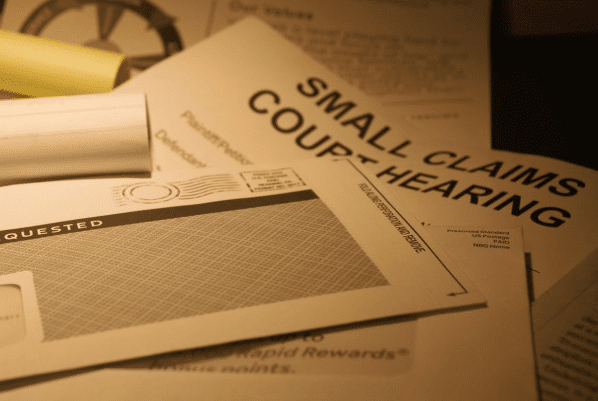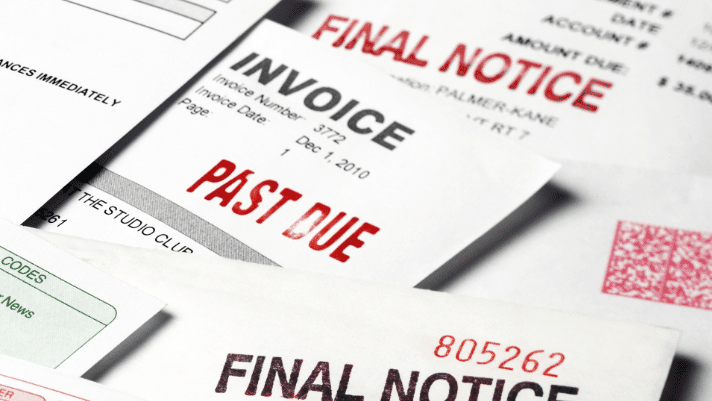In Alabama, filing an Answer to a debt collection lawsuit is free, but you must respond within either 14 or 30 days, depending on the court’s jurisdiction. ZumaZip can help you respond to your debt lawsuit quickly, often in just minutes.
Navigating a debt collection lawsuit in Alabama can indeed be daunting, but with the right guidance, you can handle it effectively. In this blog post, we’ll break down the essential steps for responding to a Summons for debt collection in Alabama. From understanding state-specific deadlines and required forms to outlining the response process, we’ve got you covered. Let’s dive in and make this process a little less intimidating.
Respond to the debt collection Summons before the deadline in Alabama
Alabama Rules of Civil Procedure Rule 12(a) states:
“A defendant shall serve an answer within thirty (30) days after the service of the summons and complaint upon that defendant except when service is made by publication and a different time is prescribed under the applicable procedure.”
In Alabama Circuit Court, you have a 30-day window to respond to a debt collection lawsuit. This countdown begins upon receiving the Summons and Complaint documents. Missing this deadline could result in a default judgment against you, allowing the debt collector to take action like wage garnishment or property seizure.
For cases in District Court or Small Claims Court, the response time is shorter at just 14 days. District Court handles debts between $3,000 and $10,000, while Small Claims Court handles cases under $3,000. Civil Court manages cases over $10,000 and those appealed from lower courts.
When faced with a debt collection lawsuit in Alabama, responding to the Summons is crucial. Rather than grappling with the complexities and costs of hiring an attorney, you can represent yourself by drafting an Answer document.
The quickest and simplest method to create your Answer is by using ZumaZips Answer form. In just minutes, ZumaZip guides you through the process, prompting you with questions about the case. This streamlined approach saves you time and stress, ensuring you meet your legal obligations effectively.
Here’s a sample of ZumaZip’s Answer form:
SAMPLE HERE
If you would rather draft your own Answer, try one of these Alabama court forms:
Draft and file your Answer with ZumaZip in under 15 minutes.
Good news! Alabama doesn’t require a filing fee for submitting your Answer document. Whether you choose to file in person or via mail, you won’t incur any additional costs for this step.
However, it’s essential to note that certain courts in Alabama might charge fees for other document filings, such as counterclaims or motions. The specific charges can vary based on the court and the type of document you’re submitting.
With the filing fee out of the way, let’s focus on crafting a strong Answer that enhances your chances of success in the case.
Follow these steps to respond to a debt collection lawsuit in Alabama
You know you’re being sued for a debt if you receive court documents in the mail called the Summons and Complaint. The Summons is an official notification of the lawsuit, while the Complaint lists the specific claims being made against you.
In a debt lawsuit, the person or company suing (usually a debt collector) is called the plaintiff. The person or company being sued is called the defendant. So, if a debt collection agency is suing you, then you are the defendant in the case.
Normally, you only have 14-30 days to respond to the Summons and Complaint in Alabama before you lose by default. You should draft and file a written Answer document to respond to the case.
Follow these three steps to respond to the Summons and Complaint:
- Answer each allegation listed in the complaint.
- Assert your affirmative defenses.
- File the Answer with the court, and serve the plaintiff.
Responding to a Complaint may feel daunting, but it’s a straightforward process.
In the initial section of your Answer document, you’ll address each allegation outlined in the Complaint. Take time to review the Complaint thoroughly, then decide how you’ll respond to each numbered paragraph. You have three options:
- Admit: Agree with the allegation.
- Disagree: Challenge the allegation, asking for proof.
- I don’t know: Indicate uncertainty about the allegation.
Legal experts often advise denying as many allegations as possible. Why? Because the burden of proof lies with the plaintiff. If they can’t substantiate their claims with solid evidence, the case may be dismissed.
You can draft an Answer document in just 15 minutes with ZumaZip’s Answer form.
Alabama’s form linked above also provides a simplified approach, where you can simply admit to all, deny all, or claim that you’re not sure.
Let’s consider an example.
In this scenario, Emily faces a debt collection lawsuit from LVNV Funding after her credit card debt of $5,000 is charged off and sold to them for just $200. Despite LVNV’s attempts to collect the debt, Emily denies all their claims using ZumaZip. LVNV fails to provide the necessary documentation proving their ownership of the debt, leading to the dismissal of the case.
Assert your affirmative defenses
After you’ve responded to each claim from the Complaint document, you’re ready to assert your affirmative defenses.
“Assert affirmative defenses” means list reasons that you shouldn’t lose the lawsuit or why you don’t owe the debt. These defenses are written into your Answer.
Here are some common affirmative defenses used in debt collection cases:
- The account with the debt is not your account
- The contract was already canceled; therefore, you don’t owe the creditor anything.
- The statute of limitations has expired. A statute of limitations is a law that sets a deadline on taking legal action. In Alabama, the statute of limitations on credit card debt is three years. So, you can’t be sued for a debt based on a contract that has been inactive for six years or more.
- The debt has been paid or excused.
- The debt has been partially paid.
- You were a co-signer but were not informed of your rights as a co-signer.
These are a few of the many affirmative defenses. Being unable to pay the debt is not a legal defense to the debt.
More specifically, Alabama Rules of Civil Procedure Rule 8(c) states:
“Affirmative defenses. In pleading to a preceding pleading, a party shall set forth affirmatively accord and satisfaction, arbitration and award, assumption of risk, contributory negligence, discharge in bankruptcy, duress, estoppel, failure of consideration, fraud, illegality, injury by fellow servant, laches, license, payment, release, res judicata, statute of frauds, statute of limitations, waiver, and any other matter constituting an avoidance or affirmative defense.”
This is just a list of affirmative defenses you can raise in a debt collection lawsuit in fancy legal terms. In order to include your defenses easily, all you have to do is respond to a few questions on ZumaZip’s website and the defenses will be automatically included in your Answer document.
Make the right affirmative defense the right way with ZumaZip.
Filing your Answer with the court and serving the plaintiff is a crucial step in responding to a debt collection lawsuit in Alabama. Although it may seem daunting, it’s a necessary part of the process. Here’s what you need to do:
- Print two copies of your Answer document, ensuring that you have responded to each allegation in the Complaint.
- Mail one copy of your Answer to the court. The court’s address can typically be found on the Summons and Complaint documents you received.
- Mail the other copy of your Answer to the plaintiff’s attorney. The attorney’s address should also be provided in the Summons and Complaint.
It’s important to remember that there is no filing fee for submitting your Answer. Additionally, make sure to send out your Answer well before the deadline. In Alabama, the deadline is 14 days for District Court and Small Claims cases, and 30 days for Circuit Court cases.
If you find this process overwhelming, you can always use ZumaZip to file your Answer for you, making the entire process simpler and more convenient.
ZumaZip can file your Answer for you in all 50 states.
What is ZumaZip?
ZumaZip makes it easy to fight debt collectors.
You can use ZumaZip to respond to a debt lawsuit, to send letters to collectors, and even to settle a debt.
ZumaZip’s Answer service is a step-by-step web-app that asks you all the necessary questions to complete your Answer. Upon completion, we’ll have an attorney review your document and we’ll file it for you.
Check the statute of limitations on debt in Alabama before paying
It’s pretty common for debt collectors to file lawsuits against people for expired debts. This is why you should always check the statute of limitations on your debt before responding to a debt collector, especially if it’s been several years since you made payments on the account.
The statute of limitations on open accounts in Alabama is three years, which includes credit cards. In other words, debt collectors only have three years to sue someone for credit card debt from the time of the last activity on the account.
So, if a debt collector contacts you about an old debt that you haven’t paid off in years, check the statute of limitations before you acknowledge the debt or pay anything. Making payments on an old debt account will restart the clock on the statute of limitations.
More specifically, Alabama Code Title 6. Civil Practice § 6-2-37(1) states:
“The following must be commenced within three years:
(1) Actions to recover money due by open or unliquidated account, the time to be computed from the date of the last item of the account or from the time when, by contract or usage, the account is due.”
And § 6-2-34(4-5) states:
“The following must be commenced within six years: Actions founded on promises in writing not under seal; Actions for the recovery of money upon a loan, upon a stated or liquidated account or for arrears of rent due upon a parol demise.”
Finally, Alabama Code Title 7. Commercial Code § 7-2-725(1) states:
“An action for breach of any contract for sale must be commenced within four years after the cause of action has accrued. By the original agreement the parties may reduce the period of limitation to not less than one year but may not extend it.”
The table below lists the statute of limitations on different types of debt in Alabama, which explains the laws listed above:
| Alabama Statute of Limitations on Debt | |
| Debt Type | Deadline in Years |
| Sealed | 10 |
| Written | 6 |
| Oral | 6 |
| Open Account | 3 |
| Breach of Contract | 4 |
| State Tax | 3 |
| Judgment | 10-20 |
Source: Findlaw | |
Now, let’s take a look at an example.
Joe’s situation highlights a common scenario many individuals face when dealing with debt collection agencies. Despite the pressure from debt collectors, Joe took the initiative to educate himself on his rights and options. By utilizing ZumaZip to respond to the lawsuit with an Answer that included an affirmative defense based on the expired statute of limitations, Joe was able to successfully defend himself in court. This resulted in the dismissal of the case by the debt collection agency, providing Joe with relief from the legal proceedings and helping him move forward with resolving his financial challenges.
Utilize Alabama legal aid organizations
Hiring an attorney can be tricky and expensive. Luckily, the state of Alabama has several legal aid organizations that can help people who cannot or do not want to hire a lawyer and are representing themselves. Here are some of the prominent legal aid organizations in Alabama:
Legal Services Alabama
1820 7th Ave North, Suite 200
Birmingham, AL 35203
866-456-4995
info@legalservicesalabama.org
https://legalservicesalabama.org/
Alabama State Bar
PO Box 671
Montgomery, AL 36101
334-269-1515
https://www.alabar.org/for-the-public/get-legal-help/
Alabama Legal Help
https://www.alabamalegalhelp.org/
Alabama court locations
If you don’t feel comfortable sending your court documents over e-file, you can always visit your courthouse and file in person. Use this Alabama Courts Directory tool to find the address of your courthouse and the court clerk’s contact information. Just click on the county in which you reside, and the county’s judicial website will open in a new tab.
Knowing where your courthouse is located can help you be better prepared for your trial and stay updated on your case status
Key Takeaways
Now, you should have all the information you need to properly respond to a debt collection lawsuit in Alabama. Don’t feel intimidated by debt collectors. While they’re really good at the debt collection game, you can beat them when they least expect it.
So, five key takeaways for responding to a debt collection suit in Alabama are:
- You have 14-30 days to respond to a debt collection lawsuit with an Answer document in Alabama.
- There is no fee to file an Answer in Alabama.
- ZumaZip can help you draft and file an Answer where you respond to each claim from the Complaint and assert your affirmative defenses.
- The statute of limitations on credit card debt is three years in Alabama.
- Alabama has several legal aid organizations that can help you, and you can visit the courthouse or call the court clerk if you have any basic questions about your case.
What is ZumaZip?
ZumaZip is a convenient solution designed to streamline your response to a debt collection lawsuit. Here’s a breakdown of what you can expect when you use ZumaZip:
Firstly, you’ll access our user-friendly web application, which guides you through the process step by step. You’ll be prompted to answer a series of questions related to your specific situation. Once you’ve completed the questionnaire, you have the option to either print out the finalized forms and mail them to the appropriate courts yourself, or you can opt to utilize ZumaZip’s services to file them on your behalf. Additionally, if you choose this option, an attorney will review your document for added peace of mind.
If you’re seeking guidance on how to effectively respond to a debt collection lawsuit, ZumaZip can provide the assistance you need. Feel free to explore our FAQs for more information on what ZumaZip has to offer.
What if I haven’t been sued yet?
If you’ve only received a collections notice, but not a lawsuit, the best way to respond is with a Debt Validation Letter. When a debt collector contacts you in any way, whether it’s by phone or mail, you can respond by formally requesting a debt validation with a Debt Validation Letter . This letter notifies the collector that you dispute the debt and forces them to provide proof you owe the debt. They can’t call you or continue collecting until they provide validation of the debt. This flowchart shows how you can use a Debt Validation Letter to win.
Get started with a Debt Validation Letter here.
How to Answer a Summons for debt collection in all 50 states
Here’s a list of guides on how to respond to a debt collection lawsuit in each state:
- Alabama
- Alaska
- Arizona
- Arkansas
- California
- Colorado
- Connecticut
- Delaware
- Florida
- Georgia
- Hawaii
- Idaho
- Illinois
- Indiana
- Iowa
- Kansas
- Kentucky
- Louisiana
- Maine
- Maryland
- Massachusetts
- Michigan
- Minnesota
- Mississippi
- Missouri
- Montana
- Nebraska
- Nevada
- New Hampshire
- New Jersey
- New Mexico
- New York
- North Carolina
- North Dakota
- Ohio
- Oklahoma
- Oregon
- Pennsylvania
- Rhode Island
- South Carolina
- South Dakota
- Tennessee
- Texas
- Utah
- Vermont; Vermont (Small Claims court)
- Virginia
- Washington
- West Virginia
- Wisconsin
- Wyoming
Guides on how to beat every debt collector
Hey there! Facing off against a debt collector can feel like a daunting challenge, but fear not! We’re here to help you navigate through it all with our handy guides designed to assist you in beating every debt collector you encounter. Whether you’re facing a new lawsuit or dealing with a persistent collector, we’ve got your back. Stay positive, stay informed, and let’s tackle this together!
- Absolute Resolutions Investments LLC
- Accredited Collection Services
- Alliance One
- Amcol Clmbia
- American Recovery Service
- Asset Acceptance LLC
- Asset Recovery Solutions
- Associated Credit Services
- Autovest LLC
- Cach LLC
- Cavalry SPV I LLC
- Cerastes LLC
- Colinfobur
- Covington Credit
- Crown Asset Management
- CTC Debt Collector
- Cypress Financial Recoveries
- Delanor Kemper & Associates
- Eagle Loan of Ohio
- Educap
- Estate Information Services
- FIA Card Services
- Forster & Garbus
- Freshview Solutions
- Fulton Friedman & Gullace LLP
- Harvest Credit Management
- Howard Lee Schiff
- Hudson & Keyse LLC
- Integras Capital Recovery LLC
- Javitch Block
- Jefferson Capital Systems LLC
- LVNV Funding
- Mannbracken
- Mariner Finance
- Medicredit
- Michael J Adams PC
- Michael J Scott
- Midland Funding LLC
- Mullooly, Jeffrey, Rooney & Flynn
- Mountain Land Collections
- MRS Associates
- National Collegiate Trust
- Nationstar Foreclosure
- Northstar Capital Acquisition
- NCEP LLC
- NRC Collection Agency
- OneMain Financial
- Palisades Collection LLC
- Pallida LLC
- Paragon Revenue Group
- Pinnacle Collections Agency
- PMAB LLC
- Portfolio Recovery Associates
- Provest Law
- PYOD LLC
- Reunion Student Loan Finance Corporation
- Revenue Group
- Regents and Associates
- RSIEH
- Salander Enterprises LLC
- Second Round Sub LLC
- Security Credit Services
- Sherman Financial Group
- Suttell and Hammer
- T-Mobile
- Transworld Systems
- Tulsa Teachers Credit Union
- UCB Collection
- Velo Law Office
- Velocity Investments
- Waypoint Resource Group
- Weinberg and Associates
- Wolpoff & Abramson
Settle your medical debt
Having a health challenge is stressful, but dealing medical debt on top of it is overwhelming. Here are some resources on how to manage medical debt.
- Am I Responsible for My Spouse’s Medical Debt?
- Do I Need a Lawyer for Medical Bills?
- Do I Need a Lawyer to Fight Medical Bill Debt?
- Does Bankruptcy Clear Medical Debt?
- How Much Do Collection Agencies Pay for Medical Debt?
- How to Find Medical Debt Forgiveness Programs
- Is There a Statute of Limitations on Medical Bills?
- Medical Debt Statute of Limitations by State
- Summoned to Court for Medical Bills — What Do I Do?
- Summoned to Court for Medical Bills? What to Do Next
Stop calls from Debt Collectors
Do you keep getting calls from an unknown number, only to realize that it’s a debt collector on the other line? If you’ve been called by any of the following numbers, chances are you have collectors coming after you, and we’ll tell you how to stop them.



































